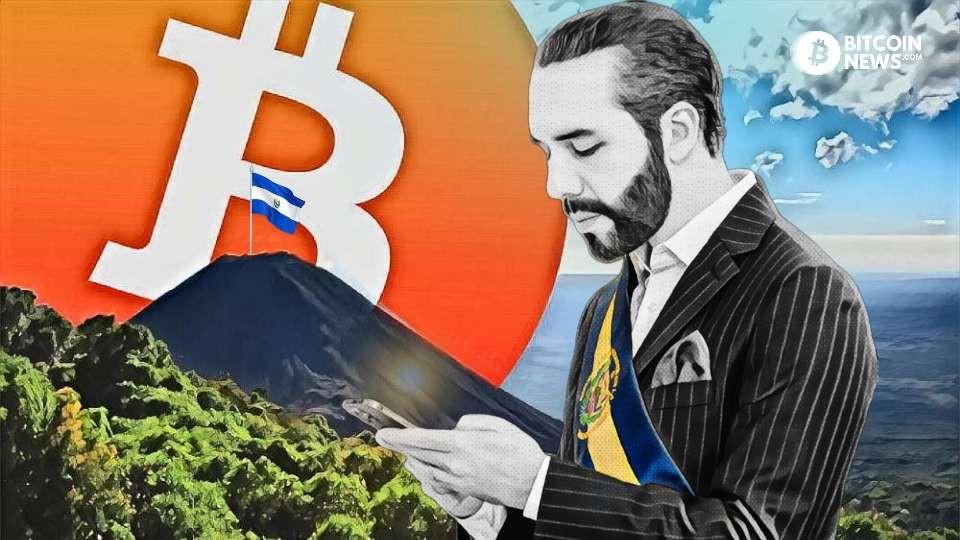
This article was originally published by Juan Galt on JuanGalt.com
A first-hand account of the new Bitcoin society emerging in El Salvador. We look at of the top Bitcoin companies working on the needs of Salvadorians, the public opinion of Bitcoin in El Salvador, national politics, regulation, and naturalization.
I write this as I sit in an Airbnb in San Salvador, the capital city of El Salvador. The Airbnb owners accept bitcoin for the rental of a beautiful property, lush in green spaces.
The cigarette I’m smoking can also be bought with bitcoin alongside a good portion of the activities I’ve taken part of this month. From making friends with an Uber driver for long trips — paid in bitcoin — to orange pilling a Jujutsu gym in under 10 minutes, and even a lifeguard turned surf coach who gave me the best surf session of my life.
El Salvador really is Bitcoin country.
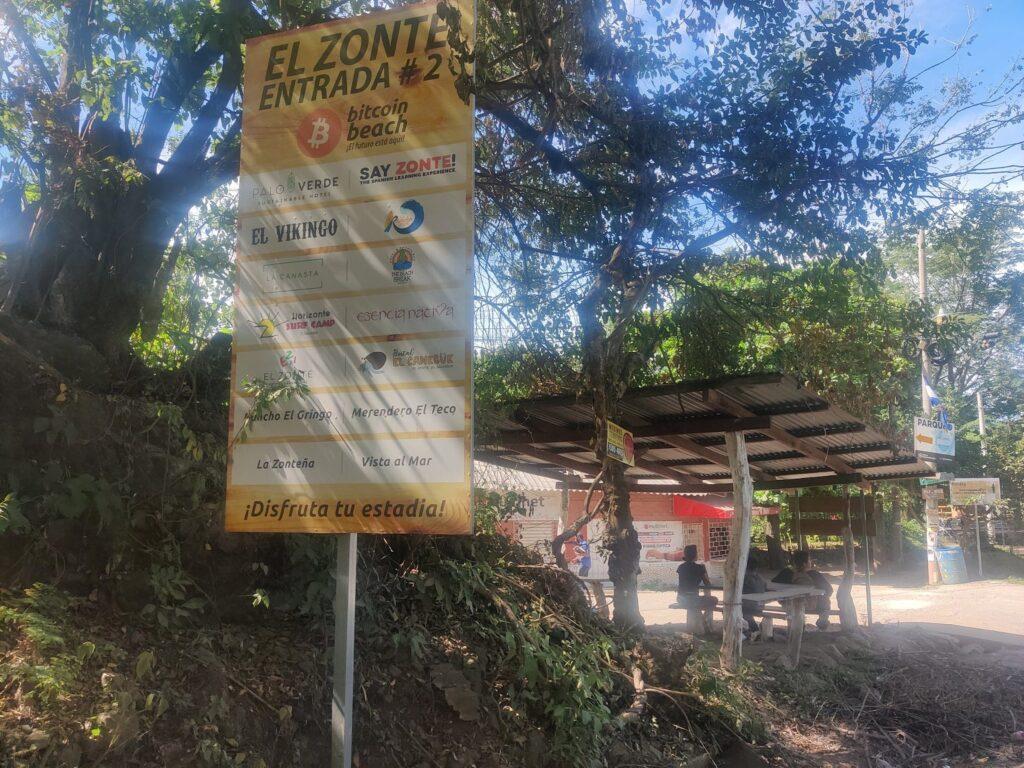
Of course, nothing is perfect and adoption in El Salvador is far from complete. Many stores still don’t accept bitcoin payments, often out of a lack of know-how or past bad experiences with Chivo, the government bitcoin and lightning wallet.
While it is great to have the government get out of the way of Bitcoin companies and even facilitate integration with legacy institutions, it is also interesting that the country is dollarized, leading to a direct comparison between bitcoin and the most stable and wanted currency in the world, the U.S. dollar.
A small but significant percentage of the population are skeptical of Bitcoin’s utility, quoting the price volatility and depreciation of BTC over the past year as well as skepticism towards Bukele’s government.
In particular, some corporate interests are rumored to be concerned about losing access to the banking system, which would be a massive blow to their business operations, leading to resistance and concern about the Bitcoin laws and its adoption.
For the most part, however, the Salvadorians I’ve interacted with are open and even eager to understand Bitcoin and how it can help them in their personal and professional lives.
The challenge however is precisely in that. How can Bitcoin help the average Salvadorian?
Many start-ups, VCs, and entrepreneurs are here trying to answer that question. If Bitcoin can succeed in El Salvador, while competing directly with the dollar, then whatever these start-ups facilitate will be able to spread like wildfire in other countries. Especially when competing with other failing “pesos” rather than the mighty greenback.
The following newsletter will give you an overview of some of the top companies working to address the needs of Salvadorians and in doing so, unlock the next level of Bitcoin technology. It also gives you an overview of the national politics and public opinion towards bitcoin in El Salvador as best as I could gather during my trip here.
So, without further ado.
Table Of Contents
Table of Contents
Banking In El Salvador

Let us begin with the legacy institutions, as they illuminate the gaps in the market that Bitcoin can address and give us a lay of the land when it comes to financial access.
El Salvador has a population of about 6 million people, with many more living abroad. As we have talked about before in a previous newsletter about El Salvador, remittances are a major source of income for the country. So we will not focus on that area as much today. Of those 6 million only about 1 million Salvadorians are reported to have bank accounts. This is a rather wide gap that Bitcoin has already begun to fill.
With the launch of the Chivo wallet, the lightning app supported by the Salvadorian government, 4 million people were onboarded to the financial system. The Chivo wallet is the most viral success story of bitcoin adoption in recent memory and perhaps in Bitcoin’s history, though the follow-through from Chivo has been spotty at best.
With government backing, Chivo offered $30 USD worth of BTC to all Salvadorians, which fueled its massive spike in downloads. Many sold that BTC right away (30 bucks represents about two days’ average salary). Some kept it and rode it down from the early year highs of 50k or more, leading to some upset about bitcoin’s stability as a currency.
The launch and continuous service were spotty — its not easy to onboard 4 million users in days and their infrastructure was hardly ready — nevertheless the Chivo team has continued to develop the platform such that I’ve personally made payments to Chivo wallets from various vendors here without much issue.
One of the key advantages of Chivo is its access to banking. Salvadorian people are used to US dollars and in particular cash. Thus the first question that needs to be answered for Salvadorians in the process of building trust and confidence in Bitcoin infrastructure is: How do they cash out?
El Banco Hipotecario, a publicly owned bank started over 100 years ago was Chivo’s answer. Lead by the executive branch of the El Salvador government, El Banco Hipotecario has provided the main rails into the banking system for Chivo users. It is likely responsible for cash-flowing ATMs and even allowing the purchase of bitcoin from Chivo.
I had the pleasure of talking with the lead of “crypto” within El Banco Hipotecario and he told us that getting a bank account with them was actually quite easy. As an exchange, all you need is a Salvadorian corporation and a compliance officer. I suspect not many exchanges actually know this, but if true, it should lead to fast banking adoption for exchanges that set up shop in El Salvador.
Other banks however seem a lot more cautious, as they are private and likely don’t have as much negotiation leverage with the international banking and settlement system. With the IMF breathing down El Salvador’s neck, their hesitation is understandable.
Part of the process of becoming a legal Bitcoin operator in El Salvador is getting incorporated and getting a Bitcoin Service Provider license. That should let exchanges operate in the country legally and get banking, we are told by Daniel Fortin, a local lawyer who focuses on this market.
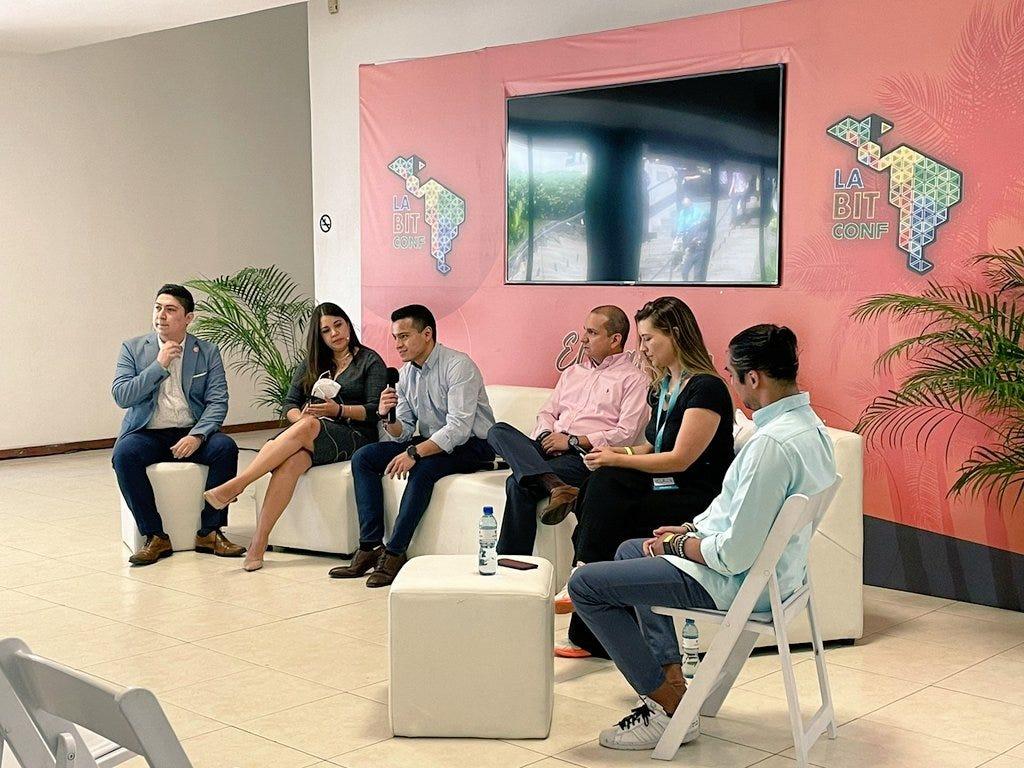
Of the wallets I got to test in the country, only Chivo had access to banking, although Athena, a well-known Bitcoin ATM company is also a major player in the country and probably has banking. Daniel tells me over 60 companies have gotten licenses in the country since the Bitcoin law, so many apps with banking access are likely to follow.
It is important to note that Chivo showed about 2.2% commission or spread during a cash-out test from BTC, while Athena is rumored to have upwards of 5-7% spread. 2% is tolerable for businesses if done at a certain scale. 5-7% is a net loss and likely to eat up much of the profit for a restaurant or small business. So there’s significant work to be done here in terms of liquidity and ease of exchange into USD.
Public Opinion of Bitcoin in El Salvador

Before we get into the many cool and promising start-ups in the country, I want to go into more depth about public opinion of Bitcoin in El Salvador. This information comes primarily from my conversation with Salvadorians in El Zonte, the famous Bitcoin Beach, as well vendors, small business owners, and uber drivers in San Salvador.
Let’s Begin With Those Who Already Accept Bitcoin as Payment
Seen among small and large businesses, they tend to treat it as simply another payment method. In El Zonte in particular many restaurants have it well integrated into their payment flows. The lightning network has been working well enough down here that payments are instant and often painless, with a transaction fail rate in my experience of maybe 1 out of 8.
These businesses are most likely converting to USD immediately with a smaller portion of them stacking sats, though given the dramatic fall in bitcoin’s price this year, my sense is that most are a bit weary of holding BTC.
Next, we have individuals who serve the tourism industry or who are not used to getting Bitcoin clients but are willing to accept bitcoin in payment — such as my surf coach in El Zonte who helped me grab more waves than I’ve ever gotten. Or the Jiujitsu master who gladly took our bitcoin after just a few minutes of guidance with the wallets.
Gracie Jiu Jitsu in San Salvador now accepts #bitcoin ✊
Thanks for the help @JuanSGalt! pic.twitter.com/0knXt1WOYq
— Andrew Howard (@Andrew_J_Howard) November 28, 2022
These types of users seemed more flexible and open to holding BTC, curious and cautiously interested, though also interested in the off-ramps. Vendors of this sort in particular need to be able to cash out, or at least hold value in dollars, as their bills are still denominated in USD despite the possibility of paying them in bitcoin.
Banked or not, Chivo is a cornerstone of adoption as it provides ATMs and banking access throughout the country; vendors often move coins from other wallets to Chivo to cash out, or go to Athena or Chivo ATMs.
The circular economy is not robust enough yet, it seems. And you have to keep in mind that during a bear market, it can be hard to sell people on hodling BTC, especially when they’ve never really seen a bull market.
Next: The Portion of the Population That is Aware of Bitcoin But Has Not Integrated it Into Their Payments
These tend to be medium-sized chains or restaurants that simply have not gotten around to it. Perhaps their owners are stalling, or they have not seen sufficient demand for it. Either way, they have not been nudged to accept it, and often can be paid with credit cards so their need for Bitcoin is not particularly strong.
As the country’s lightning wallets develop and gather greater market share, I expect them to become more interested in USD value being received over lightning rails, since they’ll be able to save on hefty credit card fees — sometimes as much as 3 USD per transaction, pricing out a whole portion of the market.
In fact, it is in this niche, the of purchase sub-5-dollar items where I’ve seen lightning shine. Even though El Salvador is dollarized, it is a relatively poor country. That means even a dollar or two is quite a meaningful amount of money, often equivalent to half an hour of work.
With a couple of bucks here you can cross the city in an uber or get some groceries for tomorrow’s breakfast. These transactions are priced out of the credit card networks, however. An excellent niche for lightning that is waiting to be popularized.
Le Resistance
Finally, you have those that are passively or actively resistant to Bitcoin. I only really met one person who seemed to have a political resistance to Bitcoin, more related to Bukele’s politics and concerns about his strongman leadership. Their argument focused on the volatility of BTC which is understandable.
Another member of this group seems to be the big business class. Some exporters of agricultural products were rumored to be afraid of retaliation by the IMF and the international banking system, such as sanctions, or limits of money transfers through the banks.
They are afraid of getting cut off from their clients abroad. This concern is likely the same for banks, as well as any other exporters and importers. While this was only a rumor I heard in a meetup and I have no source to back it up, it seemed important enough to mention.
After all, no one really benefits from sanctions in an interconnected world. The good news is that other nearby neighbors with tight economic bonds to El Salvador are also expressing interest in bitcoin, such as Nicaragua where most of El Salvador’s beef seems to come from. If such banking limits came, unlikely as I think they are, then Bitcoin would likely take the blame, but would also become the only option for international trade in El Salvador. I have no reason to think this scenario will come, but some appear to be considering it.
My conclusion in terms of public opinion is that a viral payments app that allowed USD value to move freely in the country with robust on- and off-ramps to cash, could probably take over the payments market in El Salvador, integrating the hesitant, and resolving concerns about volatility, while using the lightning network as a settlement layer and transmission rail.
The question is, which lightning wallets and companies will build the infrastructure and feature list needed to get product market fit?
Start-ups, Exchanges, and VCs
CHIVO
We have already talked about Chivo Wallet, the El Salvador government’s bitcoin payments wallet and infrastructure. It includes ATMs fairly spread out throughout the capital and other sizable demographic areas. They have banking with the country’s public bank, Banco Hipotecario.
Chivo achieved a great milestone in terms of adoption, allegedly peaking at roughly 4 million installs within the first few days, though use is likely way down, a decent portion of that infrastructure is nevertheless laid out, many people in the country have Chivo wallet installed, or had it at one point. They just need a good reason to use it.
The main issues with Chivo have been around proper support of lightning as well as reliability of service.
LN invoices are not always available, including at Chivo ATMs, and payments can sometimes be delayed by hours, given that their infrastructure is centralized and I suppose their team is struggling. There’s a very interesting interview with some of the early developers of Chivo where they talk about the inside baseball of the launch of Chivo, if you are interested.
Chivo’s feature list I think is exactly what is needed to go viral in El Salvador and bring much of El Salvador into the 21st century of finance. The devil however, is in the implementation details and here I believe there is plenty of room for competition, in particular, reliability and branding as separate from Bukele’s rule.
Galoy
Enter Galoy, a Bitcoin and lightning infrastructure company building banking-grade open source technology for wallets and organizations. Galoy is the rising giant behind Bitcoin Beach, Stablesats, as well as the Adopting Bitcoin conference which brough to El Salvador incredible talent and signal in 2022.
Bitcoin Beach
Next in line has to be the Bitcoin Beach Wallet.
Like Chivo, Bitcoin Beach is a custodial wallet, although it has a beautiful and feature-rich user interface. Developed by Galoy, a software developing firm positioning itself as the red hat of Bitcoin, Bitcoin Beach supports USD-denominated value storage and transfers through a protocol called Stablesats.
Bitcoin Beach does not currently have banking integration, however, they likely have the second or third largest adoption in the country — counting Strike — and are well positioned to be the killer app that brings financial inclusion to the country.
Stablesats, also referred to as synthetic USD, allows lightning wallets to hedge any amount of value in dollars, through the use of centralized hedging contracts. Bitcoin Beach co-founder Chris Hunter told me during a Q&A session that they used OKX as their exchange for their liquidity and derivatives markets.
Stablesats splits all value placed in the USD account into two portions, leaving 50% in BTC off-exchange and depositing the other 50% on OKX with which they use to short at 2x leverage.
The result of this strategy is an interesting amount of stability. If the BTC price went to down any amount, the dollar value saved by Bitcoin Beach users would be whole. If the price of BTC went up 100% however, the shorts would likely get liquidated, but the 50% of that value left in bitcoin off-exchange would also double, resulting in the USD equivalent value of users remaining whole.
Liquidation seems avoidable as well since you could lock in the gainz of the BTC cold storage portion of the USD liabilities and use it to add the corresponding collateral to the hedge short.

This hedging strategy is pretty cool and as a trader, I have to express some respect for its balance and design. There might be other scenarios that carry risk to Stablesats, in particular liquidity crises or thin order books, but in general, they do seem reasonably stable.
The major risk is that, compared to USDT or USDC, Stablesats involve two counterparties instead of one: the derivatives exchange and the wallet custodian. Perhaps the custodian relationship could be controlled further by multisig arrangements or other “smart contract” solutions on top of Bitcoin. We’ll see.
The major benefit of Stablesats right now is that any wallet can implement it, and since there’s no stablecoin involved, really, then USD value can be moved at the speed of lightning across wallets that support Stablesats, without the fees usually involved in on-chain USDT/USDC transfers.
One observed downside however is that, when sending USD value over LN rails across Bitcoin Beach wallets, sometimes the sent and received amounts are different by a penny or two. This is likely because of variations in price between the moment the receive wallet locks in USD value and when the send wallet locks it in. If the price moves 0.1% in those 30 seconds, that will result in tiny variations on USD value received. At the end of the day, users are just sending bitcoin after all, and not U.S. dollars.
DitoBanx
Another start-up mentioned multiple times but which I did not experience was DitoBanx. They seem to offer payments infrastructure for retail as well as corporate credit, such as bitcoin-backed loans.
I’m not sure if I ever paid for food into a DitoBanx terminal, however, they are developing a wallet which I saw a demo of, and it looks very promising. It includes a slick black-and-white interface with a digital credit card and NFC support.
It will be interesting to see how they develop, given that, unlike many countries, Bitcoin start-ups can actually get licenses and banking in El Salvador.
Mi Primer Bitcoin

I’ve long maintained that meetups are the primordial institution of the Bitcoin community.
Mi Primer Bitcoin however is taking this to a whole new level. The education events they are hosting all over the country are teaching normal, everyday people how to get, backup, and restore bitcoin wallets by the hundreds.
They are also teaching Salvadorians the fundamentals of money and Bitcoin in a 10-week course which is very impressive. I got a chance to go over their workbook and saw some solid foundations. The Salvadorians that get past this course are going to come out on the end as very strong Bitcoiners and could have a solid jump-off point into deeper development courses such as that taught by Jimmy Song.
Bitcoiners can come and join any of these meetups and graduations and personally “verify” the knowledge of students, which is a great model. As far as nonprofits go, I think Mi Primer Bitcoin is really showing their proof of work.
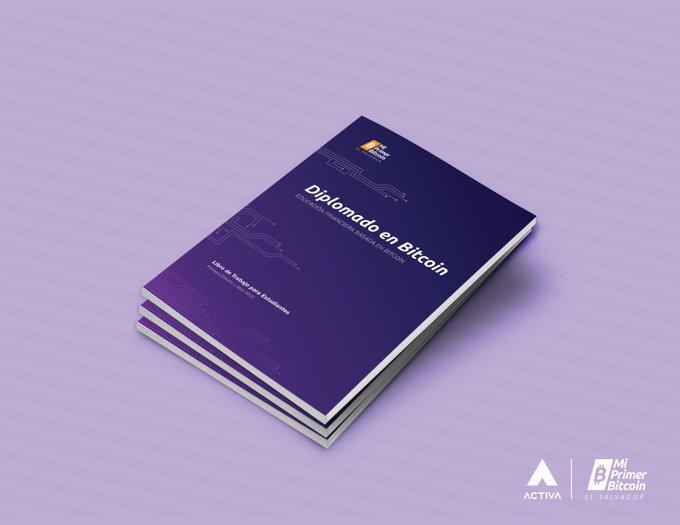
Bolt.Fun
Another cool project which seemed to have a prominent presence at Adopting Bitcoin was Bolt.fun, an organization and website that ranks lightning projects and provides a gamified environment to share Lightning innovation and connect with other developers and entrepreneurs. This is a great plate to explore the lightning ecosystem, in particular as it grows into developing and unbanked markets.
Lightning Ventures
One of the most interesting crews at Adopting Bitcoin were Muzz and the team at Lightning Ventures. LV is a Venture Capitalist syndicate that invests in Bitcoin-only start-ups, often lightning-oriented ones.
If you look at their investment portfolio, it includes heavy-hitters and innovators such as Strike, Galoy, Scarce.city, Azteco, Breez, Start9, Swan and so on.
One of the cooler things about LV is that pretty much anyone can join their syndicate, allowing plebs like myself to invest a minimum of $1,000 into start-ups that may one day become Bitcoin unicorns. Swan is a great example of a company that continues to grow even during a bear market, as demonstrated by their recent acquisition of the multisig wallet Specter.
LV also brings in capital from bigger players and liquidity providers though I’m only starting to understand what that actually means. LV has a great podcast where Muzz and the crew interview various start-ups in the BTC/LN space, check that out to learn more and if you are interested in investing, go push the button!
Other Venture Capitalists
Lightning Ventures were not the only VCs in attendance at Adopting Bitcoin or investing in El Salvador Bitcoin adoption, I had the pleasure of meeting a lady called Sharon, who’s contact info I failed to get but who is doing deeper, long-term investments in this market as well.
I also met a gentleman who leads an investment fund on cyber security companies, given Bitcoin and lightning are security-heavy software, it made perfect sense to see him here, connecting with entrepreneurs.
Bitfinex
Finally, we have Bitfinex, who sponsored Adopting Bitcoin alongside Galoy and had a very active presence throughout the event. They are building payments infrastructure using the cutting edge of Bitcoin and cryptographic innovation. I’m very interested in one of their projects in particular called Pear Credit, a P2P wallet and transaction platform for credit and other fundamentally centralized assets.
The main question that Pear answers is, why settle something like USDT on top of a blockchain, which already requires trust in the underlying banking institution when you can just transfer it using cryptographic proofs?
If you understand blockchain at all, you understand that proof of work’s goal is to secure the consensus rules of Bitcoin, and the “blockchain” is little more than an accounting system that can be cryptographically verified by users. If you are already trusting a corporation with the rules of the money, in this case USDT, then do you really need proof of work?
Perhaps all you need is cryptographic keys with which people can sign transactions proving ownership and consent as well as some kind of distributed accounting system. A blockchain without a utility token, so to speak. This would mean free or USDT-denominated fees for transfer and no more middleman shitcoins to move fiat value! I honestly think that’s pretty cool and a far more honest software stack for fiat coins, equity, and credit.
Final Thoughts: What Is At Stake In El Salvador

The fascinating thing about El Salvador is that it is both a Bitcoin-friendly country and a dollarized country.
On the one hand, the government is not only out of the way of Bitcoin entrepreneurs, but actually supportive and actively attentive. It’s a small country, a very different beast than the United States.
On the other hand, it is a dollarized country. You know what I think about the dollar: it is the best shitcoin in the game, the strongest currency in the world, and likely the last one to collapse.
So on the one hand we have a clear runway, on the other hand we are competing directly with the top dog.
Finally, we are competing for the hearts, minds, and confidence of the Salvadorian people, whom have been getting hit in the face by all intents and purposes for decades and are just now starting to really flourish.
At least that’s the dream and vision.
If this Bitcoin experiment succeeds, whatever innovations come out of this country as victors, could be strong enough to lead the hyperbitcoinization of the world! The game would be proven here after all, so other governments could simply open the doors, and dollarized or not, everyone would win.
If Bitcoin fails here however, well, let’s just say it could be a very long bear market.
El Salvador is the cutting edge. Africa is pushing the envelope too, but El Salvador has the world’s attention. If you think you can help move the needle forward here, if you think you can help deliver victory to Bitcoin and the Salvadorian people. Then maybe you should come. This moment, this place and these people need us.
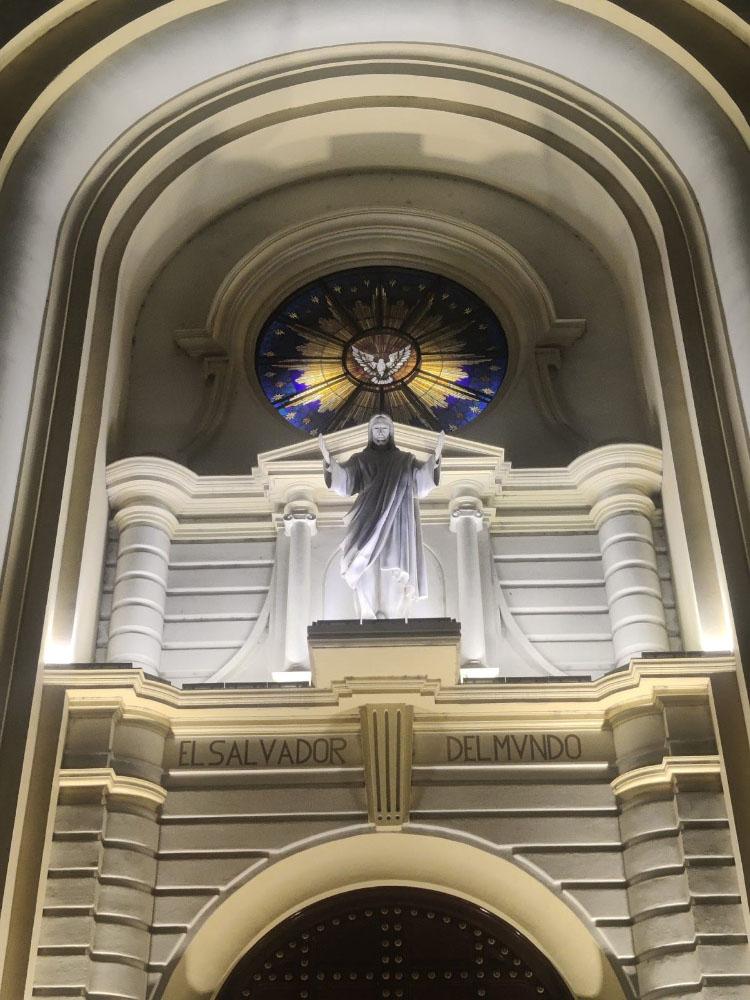
And its not that hard a sell. From a lifestyle perspective, it is a solid country. Beautiful scenery, perfect tropical climate, solid beaches, and restaurants. High talent arriving at the country and more than a few beautiful women living their best lives. It also feels quite safe — I have not had any issue, though crossing the highways can be a bit tricky at times…
From a tax and legal perspective, this country is kind of a home run for many Bitcoiners. Latin Americans can get Salvadorian citizenship within a year and save themselves all bitcoin capital gains taxes. Taxes in general in the country are incredibly low as well.
It’s a bit more complicated for U.S. citizens as you might expect but there’s still solid options available. Including the 100k purchase option, citizenship through marriage to a Latin American which shortens it to three years, or simply a 5-year temporary residency path.
I’m far from an expert on this topic of course, so just giving you the TL;DR. But I had a chance to have dinner with “Escape To El Salvador,” one of the top companies helping Bitcoiners migrate to El Salvador, and woah, I was blown away by the benefits of spending a year or two here at least, especially now.
There’s a lot more to be said for El Salvador’s legal advantages, especially for corporations and businesses. There’s some solid life-hacking potential here at a time when very fruitful seeds could be planted. But I’ll let them tell you about it, since that’s their expertise. Reach out to them on Twitter or at their website for more info.
So there you have it folks, a full report on El Salvador from a boots-on-the-ground perspective. Not exactly hard-hitting journalism, but I hope enough to give you a solid lay of the land. There’s a lot more to say but I’m already pushing the length of this newsletter.
For now I’m going to go back home and reflect on what’s next for me these coming months, but needless to say, multiple doors have opened and I’m very much looking at the paths they might lead me and the world to.
All the best.
Juan Galt.


